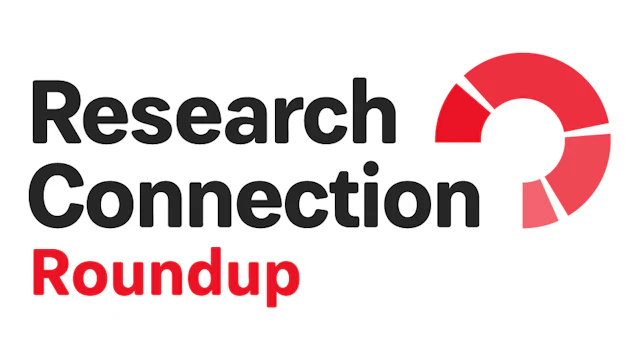The Research Roundup is a regular update of recently published findings in suicide prevention research. AFSP-funded studies included in this roundup examined how…
- Two interventions for adolescents compared in reducing risk for suicide attempt after being discharged from the hospital
- Mindfulness and self-compassion can help reduce suicide ideation in transgender adolescents
- Various aspects of COVID-19 impacted the prevalence of suicidal crises behaviors, and
- Beta-blockers are associated with psychiatric and behavioral outcomes, including suicide risk
Researcher: Beth Kennard, PsyD, David Brent, MD
Institution: University of Texas Southwestern Medical Center, University of Pittsburgh Medical Center
Grant Type: 2018 Focus Grant – $1,441,029
Grant Title: Establishing Efficacy of an Inpatient Intervention and Phone App to Reduce Suicide Risk
Reducing suicide risk among adolescents after they’ve been hospitalized for suicidal thoughts and behaviors is a major aim of suicide prevention. One way we can have an impact is by developing interventions that can help adolescents manage stress and suicidal urges during the critical period post hospital discharge. Recently, researchers have developed two new interventions: a brief inpatient intervention focused on emotion regulation and safety planning called As Safe As Possible (ASAP), and a mobile app called BRITE that guides adolescents through emotion regulation skill with a personalized safety plan.
To test the effectiveness of these two interventions when used separately and together, Drs. Beth Kennard and David Brent recruited 240 adolescents who had been hospitalized for suicidal thoughts and behaviors and randomly assigned them to different groups to receive either ASAP, BRITE, both, or just regular care. Drs. Kennard and Brent found that ASAP helped reduce the chances of being re-hospitalized, while the BRITE app seemed to lower the risk of future suicide attempts in those who had already tried to harm themselves. Although no single approach stood out as much better than the others, combining both ASAP and BRITE showed a trend toward reducing suicide attempts. These findings demonstrate the importance of matching interventions to the an individual’s experience.
Citation: Goldstein, T. R., Kennard, B. D., Porta, G., Miller, A. O., Aguilar, K., Bigley, K., Vaughn-Coaxum, R. A., McMakin, D. L., Douaihy, A., Iyengar, S., Biernesser, C. L., Zelazny, J., & Brent, D. A. (2024). Bridging Gaps in Care Following Hospitalization for Suicidal Adolescents: As Safe As Possible (ASAP) and BRITE App. Journal of the American Academy of Child & Adolescent Psychiatry. https://doi.org/10.1016/j.jaac.2024.06.008

Researcher: Karen Bluth, PhD
Institution: University of North Carolina, Chapel Hill
Grant Type: 2021 Standard Research Grant – $24, 916
Grant Title: Mindful Self-Compassion to Reduce Suicide Ideation in Transgender Adolescents
Transgender and gender-diverse adolescents experience significantly higher rates of depression and suicide ideation compared to their cisgender peers. These higher rates have been to be related to minority stress and victimization, rather than anything specific to being transgender or gender-diverse. Developing higher levels of self-compassion is linked to lower depression and anxiety and can be cultivated through interventions that teach teens skills to treat themselves with greater kindness and acceptance. One such intervention that has shown promise is the Mindful Self-Compassion program. Working with an advisory of people with lived experience, Dr. Karen Bluth adapted for transgender adolescents by substituting trans-specific scenarios and stressors into various self-compassion exercises.
To test the effectiveness of this adaptation, called Mindful Self-Compassion for Transgender Adolescents (MSC-TA), Dr. Bluth recruited two cohorts of transgender and gender-diverse adolescents to participate in an eight-session online program. Significant decreases in suicide ideation and increases in self-compassion and resilience were shown by both groups. Self-compassion and a sense of belonging were identified as ingredients associated with lower suicide ideation. Self-compassion programs can help transgender adolescents cope with stress and emotional challenges.
Citation: Bluth, K., Bryce, A., Lathren, C.R. et al. Reducing Suicide Ideation in Transgender Adolescents with Mindful Self-Compassion: An Open Trial. Mindfulness (2024). https://doi.org/10.1007/s12671-024-02421-7

Researcher: Igor Galynker, MD, PhD
Institution: Icahn School of Medicine at Mount Sinai
Grant Type: 2023 Focus Grant – $1,500,000
Grant Title: Effectiveness of Diagnostic vs. Symptom-Only Suicide Crisis Syndrome Assessment (SCS-A) for Post-Discharge Suicide Prevention
The Suicide Crisis Syndrome (SCS) is a psychological state identified as a potential precursor to suicidal behavior, particularly in individuals experiencing acute mental health crises. It was conceptualized by Dr. Igor Galynker as a framework to better predict imminent suicide risk and is characterized by a cluster of symptoms (e.g., feelings of entrapment, cognitive disturbance, extreme hopelessness, hyperarousal, social withdrawal) that are distinct from other mental health conditions, such as depression and anxiety. While many factors may influence the development of SCS, researchers have wondered if there is a relationship between global crises, such as the COVID-19 pandemic, and the incidence of SCS.
To explore the relationship between different aspects of the COVID-19 pandemic (e.g., peak daily cases and deaths, government responses and interventions) and SCS prevalence, Dr. Galynker collected data from 5528 adults across 10 countries using an anonymous web-based survey between June 2020 and January 2021. Participants with high SCS scores were more likely to be from countries with higher peak daily cases and deaths during the pandemic’s first wave. Additionally, longer exposure to the pandemic severity markers, such as prolonged lockdowns, were linked to a higher likelihood of screening positive for SCS. These findings were consistent across different countries and show that both the pandemic itself, and government responses to it, were associated with Suicide Crisis Syndrome.
Citation: Cohen, L. J., Liang, Y., Peterkin, D., McGibbon, K., Rappa, F., Rogers, M. L., You, S., Chistopolskaya, K., Enikolopov, S., Barzilay, S., Menon, V., Husain, M. I., Dudeck, M., Streb, J., Çinka, E., Yilmaz, F. K., Kuśmirek, O., Valvassori, S. S., Blum, Y., & Galynker, I. (2024). Relationship Between Severity and Length of Exposure to COVID-19 Parameters and Resulting Government Responses and the Suicide Crisis Syndrome (SCS). Disaster Medicine And Public Health Preparedness, 18, e68, Article e68. https://doi.org/10.1017/dmp.2023.235

Researcher: Brian D’Onofrio, PhD
Institution: Indiana University Medicine
Grant Type: 2020 Distinguished Investigator Grant – $124,984
Grant Title: Risks and Benefits of ADHD Medication for Suicidal Behavior: A National Study of At-Risk Youth
Beta-blockers are medications that are widely used for treating cardiac conditions and have been suggested but not confirmed for the treatment of anxiety, depression, and aggression. Beta-blockers have also been linked with an increased risk of suicidal behavior, but the research on this link is also inconclusive. Due to these inconsistencies in the research related to beta-blockers, more evidence has been needed to understand their psychiatric and behavioral effects.
With this in mind, Dr. Brian D’Onofrio examined registry data from an 8-year period for 1,400,766 individuals in Sweden who had been treated with Beta-blockers. Dr. D’Onofrio also looked at relationships with this data to hospitalizations for psychiatric disorders, suicidal behavior, and charges of violent crime. Periods of Beta-blocker treatment were associated with a 13% lower risk of being charged with a violent crime by the police, while there were no consistent associations with psychiatric outcomes and suicidal behavior. More research is needed to confirm the effect of beta-blockers in managing aggression and violent behavior.
Citation: Molero, Y., Kaddoura, S., Kuja-Halkola, R., Larsson, H., Lichtenstein, P., D’Onofrio, B. M., & Fazel, S. (2023). Associations between β-blockers and psychiatric and behavioural outcomes: A population-based cohort study of 1.4 million individuals in Sweden. Plos Medicine, 20(1), e1004164. https://doi.org/10.1371/journal.pmed.1004164
Learn more about the AFSP research grants featured in this monthly roundup, as well as others, here.


